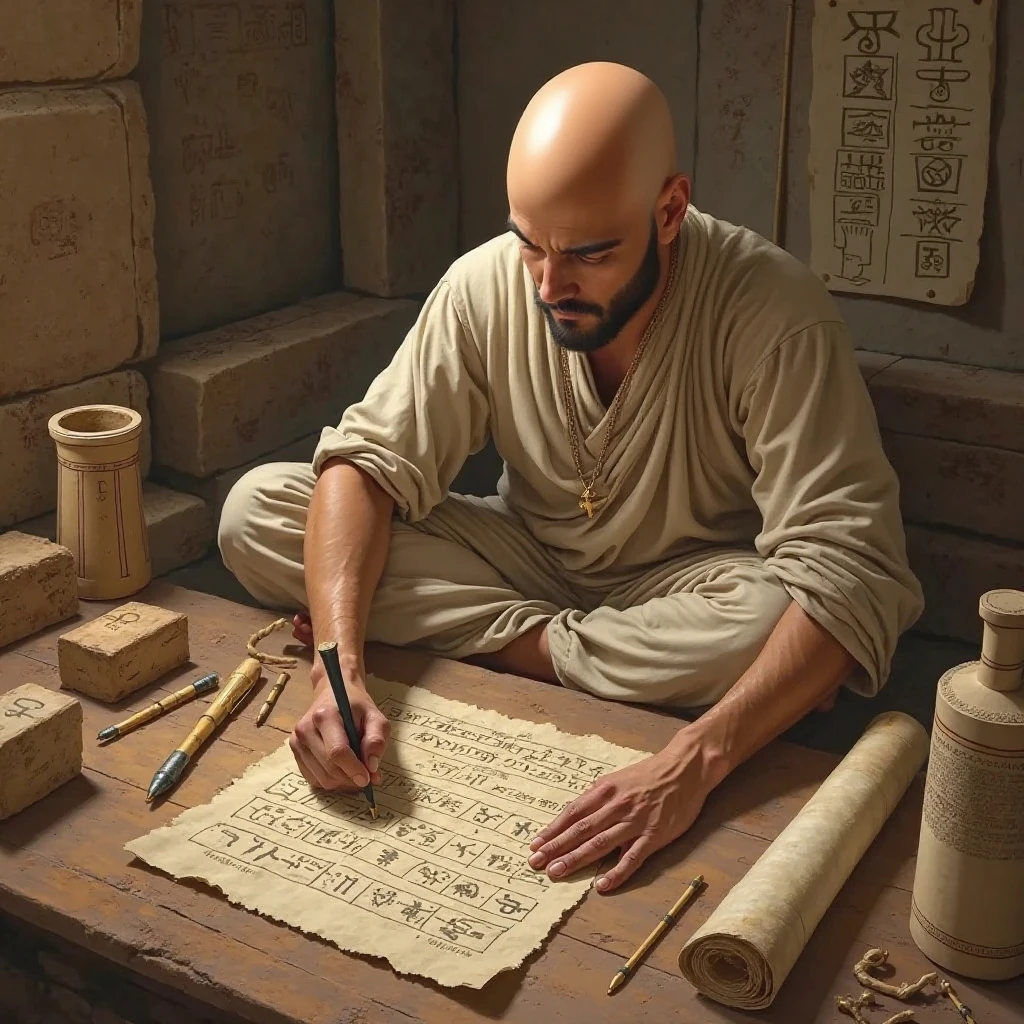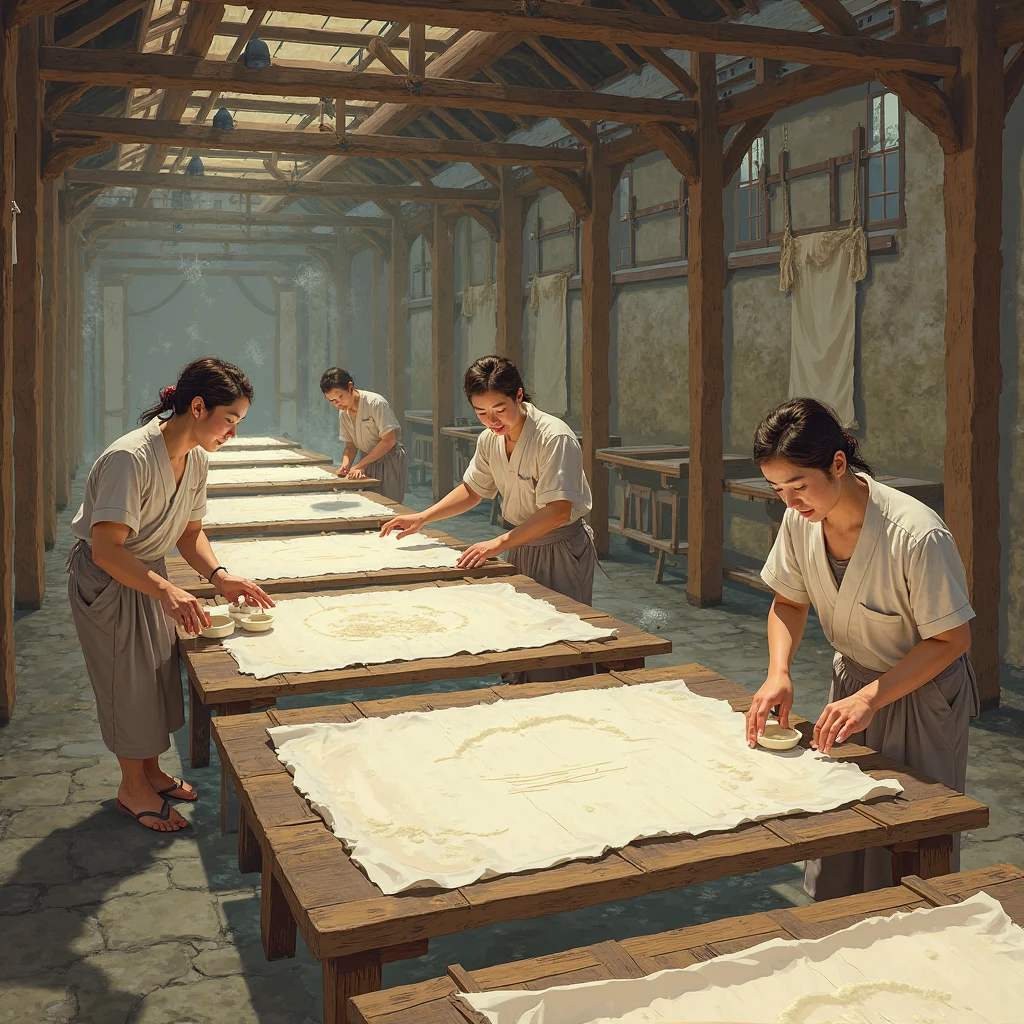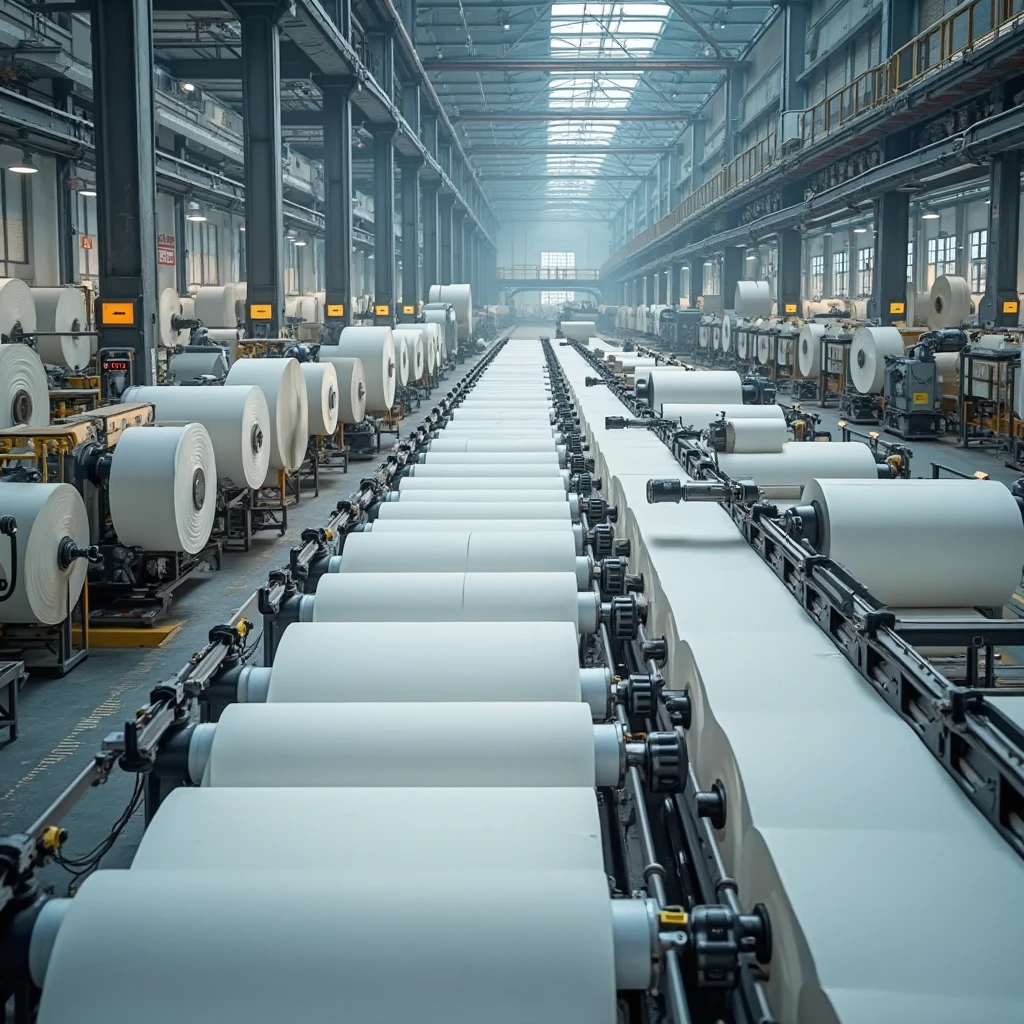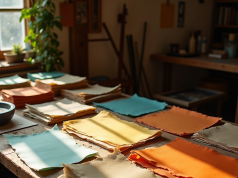Paper is one of the greatest materials invented by mankind. Its history goes back thousands of years, and its journey from clay tablets to modern digital media is full of amazing discoveries. Let's take a journey through the ages and find out how the ordinary piece of paper changed the world.
🌿 Ancient origins: the predecessors of paper
For a long time people have used unusual materials for writing. In Mesopotamia they wrote on clay tablets, in ancient Egypt - on papyrus made from the stems of the plant of the same name. In India and Southeast Asia, palm leaves 🍃 were used for writing, and in Europe, parchment made of processed animal skin was used.
But all these materials had disadvantages: papyrus was fragile, parchment was expensive, and clay tablets were heavy. The world needed a new, more practical medium.

🏮 The Birth of Paper: A Chinese Invention
The first real paper appeared in China around 105 AD.🇨🇳 Its creator is considered to be a court official Cai Lun, who developed a technology for processing silkwood fibers, rags and old fishing nets into thin sheets.
The Chinese kept the secret of paper production for almost 500 years! 🗝️ It was used not only for writing, but also for making fans, screens and even armor. It was not until the 7th century that the technology reached Korea and Japan, where the famous paper appeared vassi - incredibly strong and durable.
Read also: The journey of the paper sheet from temple altars to space technology

🌍 Paper's Journey to the West
In the 8th century, the Arabs, who captured Chinese craftsmen, learned the secret of paper making and perfected it. They started using linen rags and built the first paper mills in Baghdad and Damascus.🕌
Paper came to Europe via Moorish Spain in the 12th century. The first European paper mill opened in Hativa (Spain) in 1150.🏭 However, parchment remained the main material for books for a long time - the church considered paper "unreliable". It was not until the invention of the Gutenberg printing press in the 15th century that paper became the main carrier of knowledge.📜

🖨️ Industrial revolution: paper for all
Until the nineteenth century, paper was made by hand and remained expensive. That all changed with the invention of paper:
- Paper machine (1799) - sheets could now be produced continuously
- Wood pulp (1840s) - a cheap alternative to rags.
- Chemical pulping - to remove lignin from wood
These discoveries made paper available for books, newspapers, packaging and even wallpaper! 💰
Read also: Interesting facts about origami

💡 The modern era: from clerical to high-tech
Today, paper is not only a writing material. Modern technology makes it possible to create:
- Banknote paper with watermarks 💵
- Self-copying paper for checks
- Polymer coated photo paper
- Electronic paper (e-ink) for readers
At the same time, traditional craft techniques (e.g., Japanese vassi) are inscribed on the UNESCO list of Intangible Cultural Heritage.

🌱 The future of paper: ecology and innovation
Today, the industry is facing new challenges:
- Recycling ♻️ - modern mills can use the same paper up to 7 times
- Green production - avoiding chlorine, using straw and textiles
- Smart paper - with moisture sensors or NFC chips
Paper has come a long way from a luxury material to an everyday item and continues to evolve. Perhaps even more amazing discoveries await us in the future!
Which stage in the history of paper seems to you to be the most important? Share your opinions in the comments! ✍️







